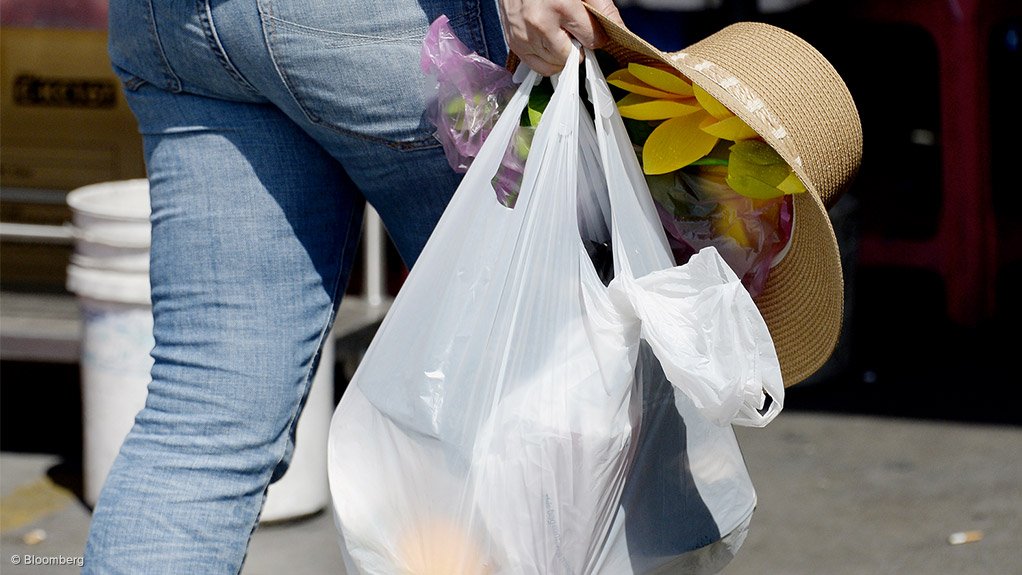A working group set up to investigate the impact ‘fillers’ are having on the recyclability of plastic supermarket carrier bags is said to have “progressed well” in researching possible solutions and will report back to the industry in June.
Established four months ago, the group includes converters, recyclers, retailers and packaging specialists.
The Sunday Times reported this week that branded plastic supermarket carrier bags, which are marked with a ‘Please Recycle’ logo, are being rejected by recyclers, owing to the addition of a calcium-carbonate filler.
The fillers, introduced to lower input costs, make the bags far denser, but create difficulties for recyclers using the sink-float process to separate the plastic from waste and contaminants.
In an emailed response to questions posed by Engineering News Online, Plastics SA executive director Anton Hanekom said the working group had progressed well and was being assisted by an external subject-matter expert.
He said that, while all polymers were recyclable, various factors affected the economics of recycling, including the volume of material available, in addition to high levels of fillers.
Therefore, the working group would seek to provide clarity on the definition of “recyclability versus not (currently) recycled”.
It would also consider the optimum level of filler in various plastic products before the specific gravity of the product changed to the all-important density level of more than one. It would also determine test methods to ensure compliance.
Alternative technologies and equipment that is available to deal with plastics with high levels of fillers were also being researched.
“The working group has until the end of June 2017 to finalise their work and to report back to the broader industry,” Hanekom said.
Meanwhile, retail industry packaging provider Premier Plastics director Sandra Bragazzi told Engineering News Online that the high-density polyethylene plastic bags it provides retailers, among them Pick n Pay, do contain fillers but are successfully being recycled.
She added that the majority of the retailers were aware of the use of fillers in the manufacturing process and explained that the filler substitution has enabled manufacturers to keep a lid on pricing, with the net effect being a lower impact on retailers cost of goods sold. “This translates to a fairly stable price to consumers. Without fillers, there would have been rampant inflation, to both [plastic bags and retail products], and undoubtedly a consumer backlash,” she added.
Edited by: Terence Creamer
Creamer Media Editor
EMAIL THIS ARTICLE SAVE THIS ARTICLE
ARTICLE ENQUIRY
To subscribe email subscriptions@creamermedia.co.za or click here
To advertise email advertising@creamermedia.co.za or click here













